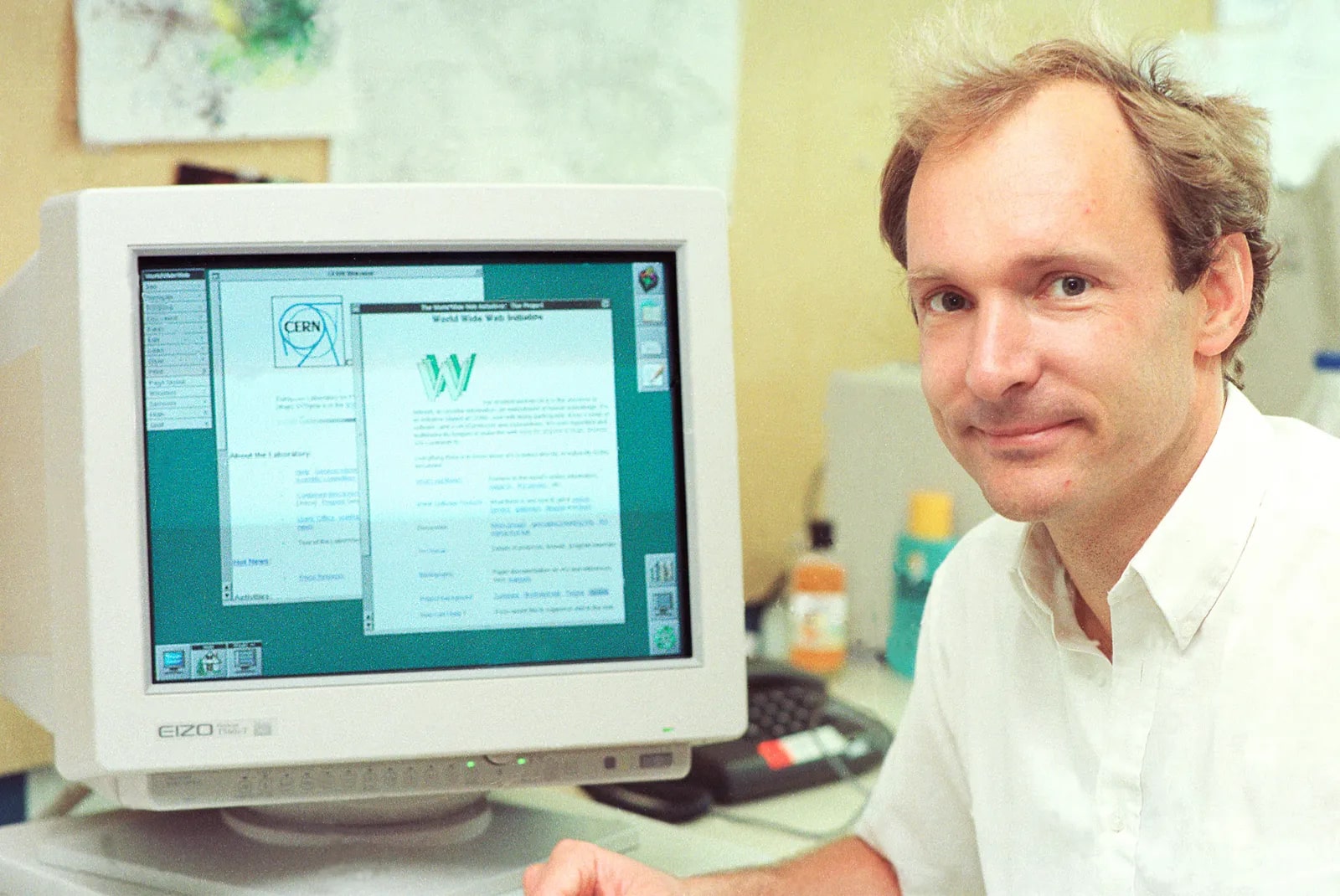Tim Berners-Lee, the man who created the World Wide Web, never set out to change the world when he developed what would become one of the most important inventions of our time.
Tim Berners-Lee, the inventor of the World Wide Web, has won many awards in recognition of his contribution to society as a whole and to the internet in particular. Here’s what you need to know about him before you bring him on as an expert or speaker for your next event.

Early Life
Born in London, England, on June 8th, 1955, Sir Timothy John Berners-Lee is a British computer scientist who is often referred to as the creator of the world wide web. His parents had originally wanted him to pursue a career in music, but they encouraged him when he showed an interest in electronics and mathematics. He attended Oxford University where he studied physics and worked with computers. It was during his time at Oxford that he developed what would later become known as the world wide web.
Berners-Lee married a programmer analyst Nancy Carlson, in the year 1990 and had two kids before they got divorced in 2011. Late he married Leith Rosemary, who was director of WorldWideWeb Foundation, in the year 2014.
When he first started developing the program, it was simply a way for scientists to share information more efficiently. While working at CERN (European Organization for Nuclear Research) in Switzerland, Berners-Lee proposed an internet that would be open to all people and free from commercial restrictions or personal gain. From 1989 until 1990, Berners-Lee spent much of his time trying to get funding for this idea. After 1991, it seemed like it would never happen because funding was not coming through fast enough; however, by 1993 work began on building HTML (Hypertext Markup Language) which became the standard language used for creating websites and sharing information over the internet.
Education and Career
He attended Oxford University and graduated with a first-class degree in Physics from Queen’s College. He did not initially have an interest in computers but instead studied physics and spent time working for CERN in Geneva where he helped create the world wide web.
When he returned to England, he worked at CERN again before eventually starting up his own company called WorldWideWeb. He is also the founder of the W3C which works to standardize technologies that are used online. As well as being famous for inventing the world wide web, he is also well known as an advocate of open standards.
Invention of World Wide Web
In 1989, while working at CERN in Geneva, Switzerland, a high-energy physicist by the name of Tim Berners-Lee proposed an idea that he believed would revolutionize how people communicate and share information. He wanted to create a way for people on different computer systems worldwide to talk with one another and share their work. At that time there was no such thing as email or instant messaging, but he recognized that computers were becoming more powerful and affordable which meant they would soon be available in more homes and offices.
Berners-Lee decided that what he needed was an easy way for people using these different machines to find each other’s documents (or pages) and read them.
Later Career and Achievements
In 1980, Berners-Lee helped create a computer system called Enquire. It was one of the first systems that allowed people to search for information through a network and by 1986 he published a proposal for what would later become known as The World Wide Web.
Ten years later, in 1990, he founded CERN where he led two major projects. One was an experiment called WWW (WorldWideWeb) and another project was called Gopher which allowed users to browse files on different servers. His work at CERN led him to be knighted by Queen Elizabeth II in 2004. Five years later, in 2009, he received the prestigious Turing Award from ACM (Association for Computing Machinery).
The post Tim Berners-Lee Biography appeared first on The Crazy Programmer.
from The Crazy Programmer https://ift.tt/NcSpRE5
Post a Comment